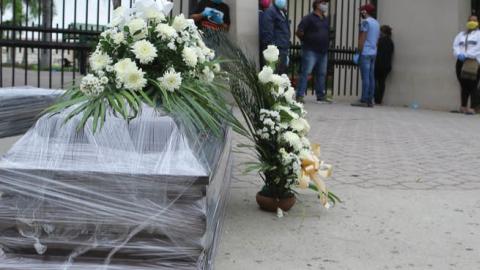The Covid-19 pandemic has yet to strike Latin America and the Caribbean at full force, but the region’s fragile societies are already groaning under the stress. In Guayaquil, Ecuador, with hospitals and morgues overwhelmed, relatives have been storing the bodies of the deceased in their homes; some bodies lay unattended in the streets. That could be a sign of things to come; Latin America is almost completely unprepared for the multifaceted catastrophe now headed its way.
After decades of underinvestment in health systems, most of Latin America and the Caribbean are nowhere near ready for a pandemic. The region’s average annual health-care spending per capita is $949: less than one-fourth of average spending across the Organization for Economic Cooperation and Development, and only two-thirds of the level in the Middle East and North Africa. The region’s health systems are already stretched beyond capacity to meet the needs of a “normal” year; going into the crisis, Mexico had fewer than 6,000 ventilators for a population of almost 130 million, and even relatively well-developed Costa Rica has less than half as many hospital beds per 1,000 people as the U.S.
While conditions vary both among countries and within them, “social distancing” of the type employed in Asia, Europe and North America faces stark limits in Latin America. Across the region, 50% or more of the population work in the “informal sector,” performing domestic labor, casual construction, working in markets or other undocumented jobs. If they don’t go to work in the morning, many will have nothing to eat. Even workers with formal jobs often live in sprawling, underserved urban slums. Millions suffer from malnutrition and untreated health conditions that are risk factors for severe coronavirus complications. Guayaquil may not be the only city where a surge of infection and mortality swamps local services; much of South and Central America lies virtually helpless before the advancing disease.
Read the full article in the Wall Street Journal

















